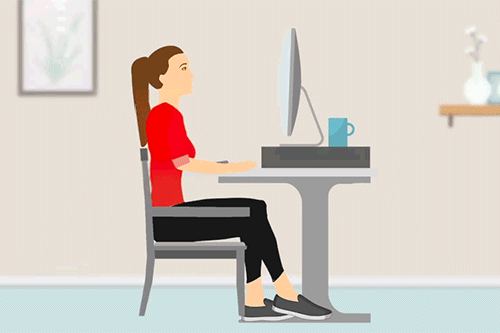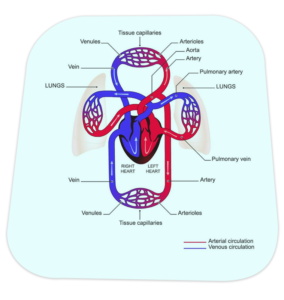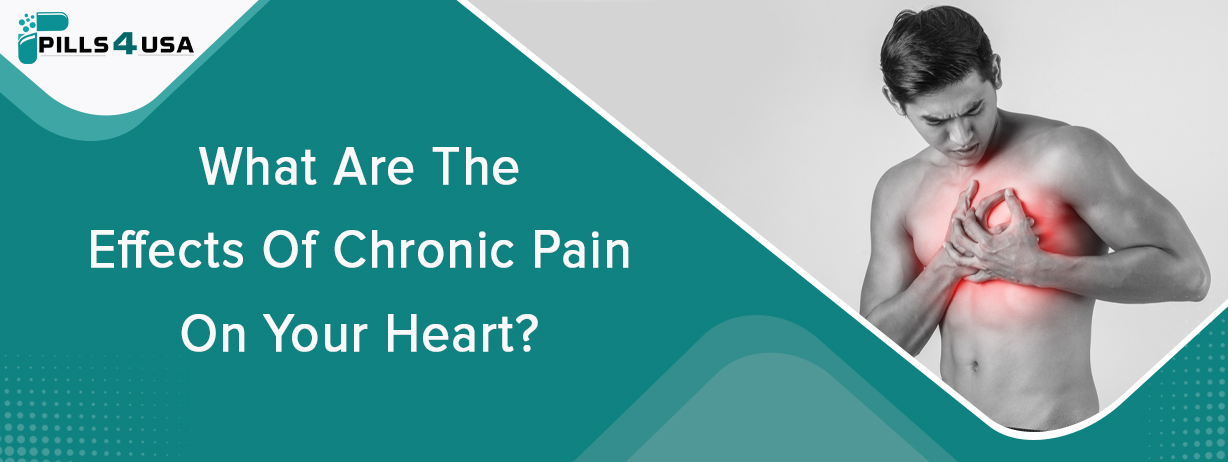Over 100 million Americans suffer from chronic pain due to conditions like arthritis, fibromyalgia, nerve damage, injuries, or headache disorders. While the obvious impact is reduced quality of life, emerging research shows chronic pain also negatively affects heart health, especially in men. Read on to learn the connections between persistent pain and cardiac risks. What are the effects of chronic pain on your heart?
Pain And Stress Response

The body perceives pain as a threat, triggering the primal fight-or-flight stress response. The adrenal glands flood the bloodstream with inflammatory cortisol and adrenaline hormones to prepare for action. Blood pressure, heart rate, and blood sugar levels surge.
When pain is temporary, so too is this response. However, with chronic pain, the stress reaction never fully winds down, keeping these physiological changes ongoing. This wears on the cardiovascular system over time, increasing the risk of hypertension, stroke, and heart attack.
In addition, this chronic state of stress can also lead to digestive problems, headaches, difficulty sleeping, and anxiety and depression.
Impact Of Chronic Inflammation
Inflammation is the body’s healing response to illness or injury. But with chronic pain, inflammatory chemical messengers remain constantly elevated. This fuels a destructive cascade of platelet clumping, atherosclerosis, and blood vessel damage. Inflammation thins artery walls and disrupts electrical heart rhythms, paving the way for cardiac disease.
Research confirms links between inflammatory biomarkers like C-reactive protein and heart damage. Inflammation also increases the risk of developing type 2 diabetes, as it causes insulin resistance. It also increases the risk of stroke and dementia. Providing fast and targeted pain relief, Pain O Soma 500 mg provides fast and targeted pain relief.
Lifestyle Risk Factors Compound Matters
The strain of coping with nagging, unrelenting pain promotes negative lifestyle behaviors that further tax heart health. Chronic pain sufferers are more likely to gain significant weight, smoke, drink excessively, and avoid exercise. These compounds risk by promoting obesity, lung damage, liver issues, plaque buildup, and hypertension.
Lack of muscle movement also reduces beneficial HDL cholesterol while decreasing oxygenation. These detrimental impacts are especially concerning for middle-aged men already facing higher cardiac risks after age 45. Therefore, chronic pain sufferers need to make lifestyle changes to reduce their health risks. Regular exercise, a healthy diet, and quitting smoking can help to mitigate these risks.
Chronic Pain Medication Side Effects Take A Toll
 Analgesics and other medications used for persistent pain management also influence cardiovascular health. For example, some research correlates Regular NSAID use with upticks in blood pressure and incidence of heart failure. Similarly, historically popular analgesics like Vioxx and Bextra were pulled from the market after evidence that long-term use doubled heart attack risks.
Analgesics and other medications used for persistent pain management also influence cardiovascular health. For example, some research correlates Regular NSAID use with upticks in blood pressure and incidence of heart failure. Similarly, historically popular analgesics like Vioxx and Bextra were pulled from the market after evidence that long-term use doubled heart attack risks.
This highlights the delicate balance required between pharmaceutical pain relief and heart protection. Pain management should be tailored to the individual and their medical history. Discussing the risks and benefits of all analgesics with a doctor or other healthcare provider is important. Regular check-ups and monitoring are important to ensure that any medications used are safe and beneficial for the individual.
Seeking Integrative Care
Conventional treatment focuses solely on pain relief, often neglecting wider wellness impacts. However, modern integrative care strategies take a whole health approach that accounts for the interconnected nervous, cardiovascular, and inflammatory systems.
Therapies like acupuncture, yoga, massage, meditation, and nutrition counseling address pain while optimizing heart health markers. Providers personalize complementary modalities based on contributing factors like diabetes, excess weight, fatigue, and stress load. Support groups also encourage positive coping strategies and lifestyle change accountability. Buy Pain O Soma 350 mg to avoid discomfort and muscle spasms confidently.
Strengthening Cardiovascular Reserve

Even without full pain resolution, restoring some cardiovascular resilience protects against future cardiac events. Prioritizing aerobic movement every day nourishes the heart. This keeps blood pumping while conditioning heart muscle, lowering inflammatory C-reactive protein, and improving HDL profiles.
Maintaining healthy body weight via a Mediterranean-style diet high in omega-3s also lowers cardiac risk. Minimizing smoking and alcohol consumption provides further stabilization. Finally, stress-moderating practices calm the body’s overactive fight-or-flight response activated by chronic pain.
The Positive Outlook Perspective
Sustained suffering understandably dampens psychological health and perceived wellness — but reframing thought patterns can lessen the body-wide impact. Cognitive behavioral approaches train chronic pain patients to interrupt detrimental mindsets that breed anxiety, anger, helplessness, and depression. Over time, choosing positive perspectives preserves both emotional and cardiovascular resilience.
Patience is needed when making long-term lifestyle turnarounds. Step by step, improved fitness habits, nutrition, and self-care slowly heal the mind-body connection strained by chronic pain. This can help to reduce pain and increase quality of life. Regular exercise, meditation, and relaxation techniques can also help improve chronic pain patients’ overall well-being.
Psychological Impacts Negatively Affect Physiology
The psychological burden of unabated pain cannot be ignored. Frustration, anger, depression, and perceived isolation often accompany chronic pain. Researchers propose that associated stress hormones and brain-immune system interactions have negatively impacted health over decades.

Further studies around psychosocial factors are still needed. Psychosocial interventions, such as cognitive behavioral therapy, can help reduce stress levels and manage pain. Additionally, support groups can help individuals feel connected and understood, which can help reduce feelings of loneliness and frustration. Finally, medication can also be used to provide temporary relief from pain.
Positivity Protects Physiology
Reframing thought patterns around pain and life disruption can lessen damaging body-wide effects over the long run. Cognitive behavioral approaches teach important mental techniques to interrupt cycles of despair and perceived helplessness that breed anxiety while promoting positive perspectives and preserving emotional health and cardiovascular function.
Patience pays off when turning lifestyle habits around. With practice, these strategies can help to reduce stress levels and create a calmer, healthier mindset. Additionally, seeking help from a mental health professional can be beneficial in providing additional support and resources.
In Summary
Chronic pain stresses multiple bodily systems, including the heart and blood vessels. However, recognizing these complex relationships is the first step toward solutions. With an integrative treatment paradigm addressing whole health, improved pain management is possible without sacrificing cardiovascular wellness.
Likewise, optimizing fitness, diet, weight, and stress-coping skills strengthens the heart to withstand the demands prolonged pain often imposes on male physiology. Ultimately, this multidimensional approach offers the best protection against the heavy toll exerted when chronic pain persists for years.



